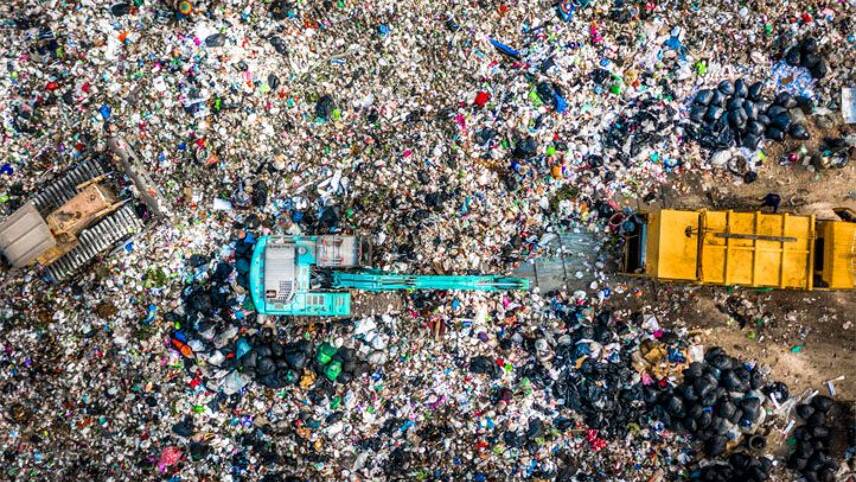Register for free and continue reading
Join our growing army of changemakers and get unlimited access to our premium content

The figure has been calculated by NGO Portfolio Earth, which was set up to help pressure the finance sector into addressing its historic contribution to biodiversity loss and climate change. It is detailed in a new report based on data from the loans and underwriting of 265 major banks.
Collectively, these banks provided $790m of funding every day to more than 40 publicly listed companies across the plastics value chain during the period studied, the report claims. These include polymer, packaging and consumer goods giants.
Portfolio Earth has calculated that more than 60% of this finance was provided by just ten banks, all concentrated within the US and Europe: Bank of America, Citigroup, JPMorgan Chase, Barclays, Goldman Sachs, HSBC, Deutsche Bank, Wells Fargo, BNP Paribas and Morgan Stanley.
The report accuses these banks and the 255 others of broadly failing to attach green conditions to their funding to the plastics sector. None of the banks analysed, it claims, has ESG policy relating specifically to the plastics industry, or has a time-bound plan for divesting from plastics. This is despite accelerating progress in the development of due diligence systems and financing exclusions for fossil fuels and deforestation-linked products.
Portfolio Earth is not calling for total divestment from all plastics-related firms. However, it wants to see investors and banks implementing environmental best-practice requirements. The companies they finance should be prioritising reusables and recycled content, and throwing their weight behind initiatives to stop plastic pollution. National legislation could help create a level playing field in this area, the organisation argues.
“For the throwaway plastics industry – from production, to use, to end-of-life, smart investors accurately model environmental risks into their investment strategies,” Planet Tracker’s director of plastics programmes and financial markets Gabriel Thoumi said.
edie has reached out to the banks named by Portfolio Earth as the top ten financiers of plastics for comment.
Pandemic impact
Pre-Covid-19, eliminating single-use plastics and tackling plastic pollution was top of the sustainability agenda for the general public – and, by extension, for many businesses.
But the WHO’s declaration of a global pandemic in March 2020 paused progress in many regards. The use of single-use plastic face shields and rubber gloves skyrocketed as workers were encouraged to wear PPE. Refill offerings in some places had to be stopped for public health reasons. Pro-plastic lobbyists latched on to the immediate increase in demand for certain plastic products, encouraging consumers in the US to use single-use plastics and urging states to delay or scrap various bans and charges.
Nonetheless, a new landscape for plastics has now emerged, with many businesses once again able to work at full steam on reusability, recyclability and alternative materials. The global green recovery movement in the policy space, however, has tended to focus more on the low-carbon transition and on social sustainability than resources and waste. While the UK Government confirmed multi-million-pound packages for retrofitting, renewable energy, active transport and hydrogen, consultations on the Resources and Waste Strategy scheduled for 2020 were shelved for this year.
Sarah George


Please login or Register to leave a comment.